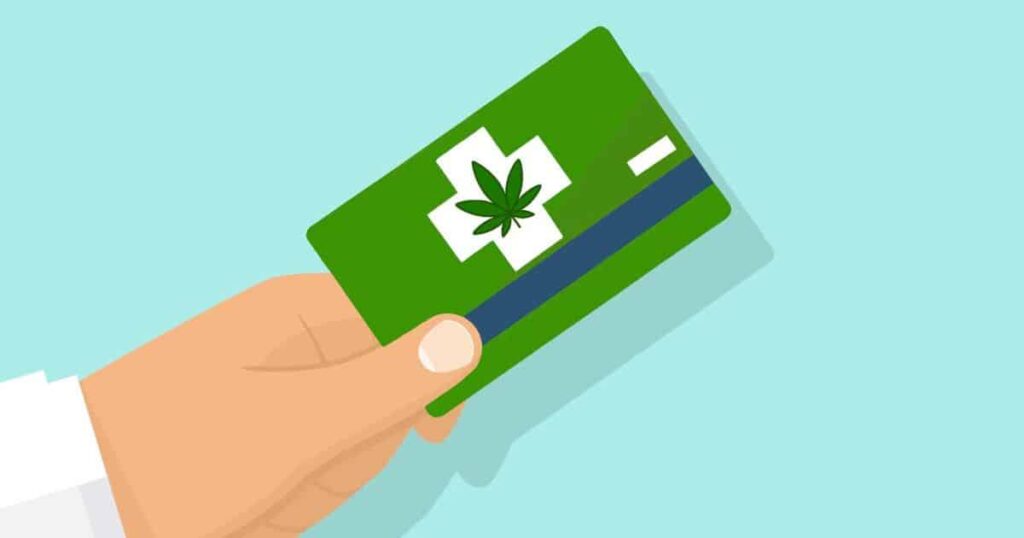In a move that should garner praise, applause, and celebration, the Arizona state Senate voted to reduce the cost of medical marijuana cards and would make them free for all military veterans who seek cannabis/marijuana as a treatment.
The major cost cut puts the registration and bi-annual renewal fee at $50—one-third of the initial $150 price tag! This slashes exclusionary barriers to medical cannabis treatment, especially for veterans who suffer from PTSD, chronic pain, insomnia, and heightened anxiety, which is often triggered by the process of adjusting back into civilian life.
The legislation must now succeed in the House of Representatives before it can be considered by Gov. Katie Hobbs (D).
Arizona’s Medical Marijuana Cardholders Decrease In Number: The Implications For Local Businesses
Arizona Public Media reported in September 2022 that the number of medical marijuana cardholders dropped to less than 50%, falling far below the 150 000 mark. This places emerging and existing local businesses in the industry at risk.
Reports from local businesses indicate low percentages of patients returning to renew their medical marijuana ID cards (likely due to the costs associated and the licensing processes), forcing business owners to reduce staff and, therefore, their service offerings.
Some have had to implement cost-cutting measures to incentivize patients to return, waiving specific fees. Who compensates them for this?

Preserving The Medical Patient Model And Reducing Harm To The Consumer
This has further implications for the medical marijuana industry as a whole, as the recreational market continues to offer consumers comparatively cheaper prices with no certification process whatsoever. It is also tricky to regulate legally. It also has no duty of care that can be legally enforced.
There is no recourse for the consumer who may purchase a substandard product or illegally-grown bud that is tainted by pesticides or unqualified fertilizers used in the growing phase.
As it applies here, the medical patient model offers cardholders the status of “medical patient,” allowing them access to legal, over-the-counter services, adequate care, and, most of all, safety in consuming marijuana for recreational and medical purposes. In the legal industry, growers and medical marijuana dispensaries are subject to quality controls, such as providing health information about the product.
Considering the investment of growers, dispensaries in the legal, medical marijuana marketplace, and those involved in medical marijuana card certification processes, this is an instance where the state needs to be proactive: speeding up the pace of qualifying medical marijuana cardholders would be a great encouragement.
Supporting law enforcement is another great step toward limiting the opportunities for illegal business enterprises. This works in tandem with providing support for businesses in the form of state-mandated and/or subsidized cost reductions.
Arizona Marijuana Regulations And Reform
In November 2020, Arizona and three other states voted to legalize the possession, use, and sale of cannabis (marijuana, the common name for the cannabis plant that is smoked recreationally, was included in the deliberations).
Interestingly, Arizona marijuana dispensaries began sales in January 2021. It was a fast response highly praised by the industry, indicating a political willingness to offer citizens the benefit of cannabis treatment without nefarious or unfair prosecution.
The state’s citizens voted just over the margin of 50% in 2010, illustrating that the collective social view was slowly changing in Arizona. Medical marijuana cards are now much easier to obtain and finance, allowing veterans to use a mild treatment without little to no side effects.
This allows patients to reduce or forego their reliance on prescription drugs, alleviating the stress of enduring expensive medical payments for chronic medication.
Cannabis has proven effective in many medical conditions, but most importantly of all, it offers a vulnerable subgroup a painless, accessible treatment that can be consumed in a variety of ways, autonomously chosen for the consumer’s greatest comfort. This ease of treatment is invaluable.
The new legislative measures were passed with bipartisan support in the Arizona Senate. Before consideration by the state’s governor Katie Hobbs, it must be approved by the House of Representatives.
Arizona Marijuana Dispensaries
The first marijuana dispensary opened in 2017. The number now stands at over one hundred (also called medical cannabis dispensaries). This has produced some interesting results, with medical dispensary patients reporting using cannabis as a substitute for prescription medication and even alcohol.
Further, there has been a remarkable decrease in cannabis users citing alcohol and drug problems to their attending doctor or nurse when visiting the hospital emergency rooms.
The positive social outcomes are invaluable to families and communities, having faced the negative repercussions of failed treatments, maladjustment to social life, paranoid anxiety, severe stress, attempts at suicide, and severe depression in friends, partners, and veteran-family members.
A Special Case For Military Veterans
For veterans especially, this is a surge in the direction of hope: something they have lived without for a long time. A cursory internet search reveals the harrowing stories of veterans struggling with PTSD, social ostracization, and the lack of effective, non-addictive medical treatments.
The deep sense of camaraderie founded by military service places an emotional burden of responsibility on veterans to “continue the rescue” while watching their military colleagues suffer after returning from conflict zones.
Ann Torrez, the Executive Director of the Arizona Dispensaries Association, stated clearly, the political will to help veterans was focused on their liberty to choose to use cannabis or marijuana as a treatment and recreationally (which can be seen as the same thing in cases of trauma). The Arizona marijuana regulations require that medical marijuana products have a QR code on the packaging linking the buyer to important information, such as health warnings.
This marks a shift in political response, whereas prior, the U.S.A.—especially the federal government—could be criticized for hypocrisy or an absurd lack of compassion regarding some of their most vulnerable citizens who dutifully served their country in the military and war.
Arizona is one of the states that can leave that accusation firmly in its past.
Keep up to date with remarkable moments in the medical cannabis industry in the U.S.A. and North America by subscribing to Beard Bros news and press releases.

Enjoyed that first hit? Come chill with us every week at the Friday Sesh for a freshly packed bowl of the week’s best cannabis news!





















